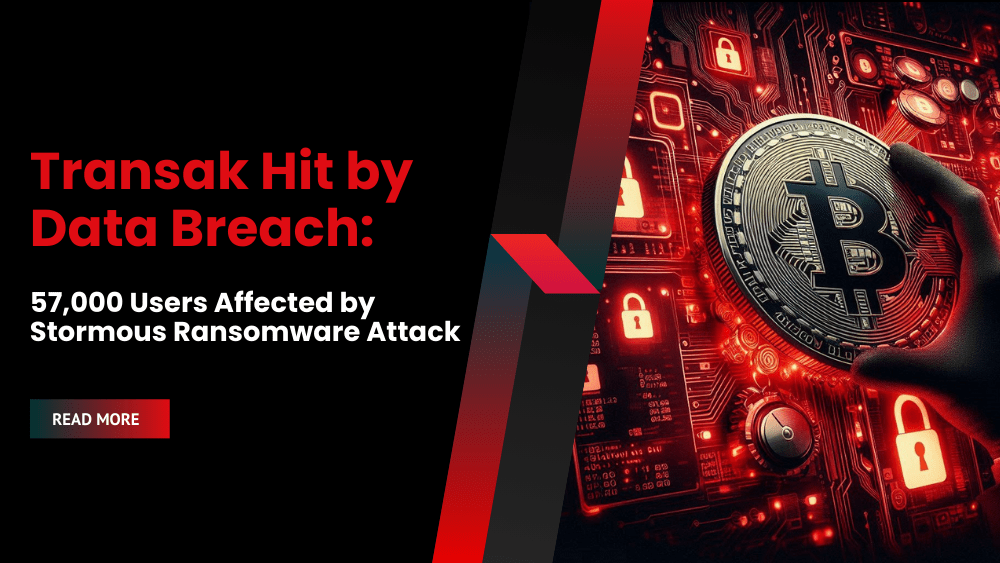A significant data breach at Transak, a popular fiat-to-crypto payment gateway, has exposed the personal information of over 57,000 users. The attack, claimed by the Stormous ransomware group, highlights vulnerabilities in Know Your Customer (KYC) procedures within the cryptocurrency industry. This incident underscores the ongoing challenges in balancing user security with the regulatory requirements of KYC compliance.
The Stormous Ransomware Breach: How it Happened and What Data Was Compromised
Transak, integrated into prominent platforms like MetaMask, Trust Wallet, and Coinbase, confirmed the breach on Monday. The attackers exploited stolen credentials from an employee’s laptop to access the system of a third-party KYC provider used by Transak for document verification.
While the company assures that financial information such as social security numbers and credit card details were not compromised, the breach did expose personally identifiable information (PII). This includes names and addresses of more than 57,000 users—approximately 1.14% of Transak’s user base.
Transak CEO Sami Start emphasized that, “We don’t know if they actually did it or they are just taking the credit for it,” regarding Stormous’s claim of responsibility.
The Stormous ransomware group, previously responsible for an attack on Fractal ID in July, claimed responsibility for exfiltrating 300GB of data. This data reportedly includes IDs, financial statements, and selfies used during the KYC onboarding process. Some of this stolen data has already appeared on Stormous’s website, with the group threatening to release more unless a ransom is paid. Transak, however, has refused to negotiate with the attackers.
Impact and Transak’s Response to the Transak Data Breach Incident
Although there’s no evidence of data misuse yet, Transak advises affected users to remain vigilant. The company has engaged third-party experts to investigate the breach and is working with law enforcement and IT specialists to enhance security measures. The employee whose compromised laptop facilitated the attack has been terminated. Importantly, Transak maintains that user funds were not at risk due to its non-custodial on-ramp model. The incident, however, raises serious concerns about the security of KYC processes within the crypto ecosystem.
This Transak data breach incident follows other recent high-profile crypto hacks, including the alleged misappropriation of funds from WazirX, an Indian cryptocurrency exchange. These events are prompting calls for strengthened security protocols and improved KYC procedures across the cryptocurrency industry. Transak is providing affected users with tools to help detect fraudulent activities and is committed to preventing future incidents.
The Broader Implications of the Transak Data Breach
The Transak data breach serves as a stark reminder of the ongoing security challenges faced by the cryptocurrency industry. The reliance on third-party KYC providers introduces a layer of vulnerability that needs careful consideration. The incident also highlights the potential for phishing attacks to compromise even established companies.
The threat of ransomware attacks and the potential for data leaks remain significant concerns. The crypto community is demanding increased transparency and accountability from both exchanges and KYC providers to ensure the safety and security of user data. The incident underscores the need for robust security measures, regular security audits, and employee training to mitigate future risks. The long-term impact on user trust and the reputation of Transak remains to be seen, but the incident undoubtedly raises questions about the overall security landscape within the crypto space.









